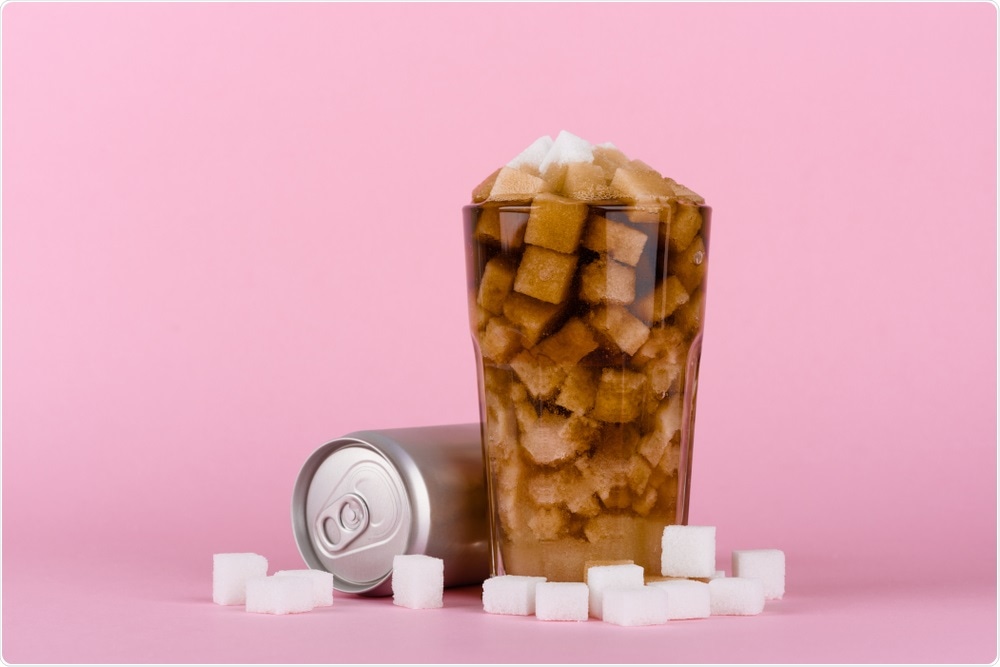
There are many factors that can contribute to the development of type 2 diabetes, and scientists are still uncovering more. Now, a team of researchers at the Harvard T.H. Chan School of Public Health has released a study suggesting that drinking more than two artificially sweetened or sugary soft drinks each day increases the risk of diabetes.
What are sugary drinks?
Sugary drinks, also called sugar-sweetened drinks or soft drinks, are beverages containing added sugar and other sweeteners, such as fruit juice concentrates, sucrose, and high fructose corn syrup. Included in the sugary drink category are cola, tonic, pop, soda, lemonade, and fruit punch, to name a few.Collectively, these drinks are the single largest source of added sugar and calories in the U.S. diet. In other countries, the consumption of sugary drinks is increasing significantly due to widespread beverage marketing and urbanization.
Published in the journal Diabetes Care, the study aims to look for the long-term effects in the consumption of artificially-sweetened beverages (ASBs) and sugar-sweetened beverages (SSBs), and its connection with the risk of developing type 2 diabetes.
The team found that drinking more artificially-sweetened beverages, as an alternative to sugar-sweetened beverages, such as soda and fruit juices, increases the risk of type 2 diabetes, which is a chronic condition wherein the blood sugar level elevates.
Sugary drinks and type 2 diabetes link
The study revealed that those who increase their sugary beverage consumption may have a greater risk of having type 2 diabetes. There are two types of sugar drinks – sugar-sweetened beverages (SSBs) such as sodas and fruit juices, and artificially-sweetened beverages (ASBs), such as diet drinks.The researchers discovered that those who drank more SSBs had a higher risk of type 2 diabetes. The increase in risk was even true for those who drank ASBs, often branded as diet drinks. The risk of diabetes reduced when one daily serving of the sugary drink was replaced with water, tea, or coffee.
For the study, the team recruited 192,000 adults who are participants in three long-term studies - the Health Professional’s Follow-up Study, Nurses’ Health Study, and the Nurses’ Health Study II.
They divided the participants into three groups, the first group had type 2 diabetes, the second group had an uncommon type of diabetes, also called latent autoimmune diabetes in adults (LADA), which is characterized to have the symptoms and hallmarks of both type 1 and type 2 diabetes. The last group had no diabetes and were healthy.
They also tracked the participants’ changes in sugary drink consumption for a long period through a food frequency tool answered every four years.
The team of researchers found that those who drank more than two sugary drinks each day were twice as likely to develop diabetes. However, they found that the link was weaker in those who have LADA. Specifically, they found that a high consumption of sweetened beverages by about 4 ounces each day for four years is tied to an 18-percent increase in the risk of diabetes.
Hence, replacing sugary drinks with water, tea, or coffee can help reduce the risk by 2 to 10 percent.
The study results are in line with current recommendations to replace sugary beverages with noncaloric beverages free of artificial sweeteners. Although fruit juices contain some nutrients, their consumption should be moderated."
Frank Hu, Study Author & Professor of Nutrition and Epidemiology
Diabetes by the numbers
Type 2 diabetes is a chronic condition that happens when the pancreas does not produce adequate amounts of insulin, or the body can’t effectively utilize the insulin it produces. Across the globe, there are an estimated 422 million people who have diabetes in 2014, up from 108 in 1980.Diabetes is a major cause of many complications such as stroke, heart attack, kidney failure, blindness, and lower limb amputation. At least 1.6 million people had died due to diabetes in 2016.
How sweet are these drinks?
Sugary drinks typically contain 7 to 10 teaspoons full of sugar. To put this in perspective, a teaspoon of sugar is around 4.2 grams.Aside from sodas, energy drinks also contain added sugars. These drinks contain as much sugar as sodas, but also contain caffeine that can increase the blood pressure. Some products even contain unknown ingredients whose long-term health effects have not yet been explored or identified.
The take-home message? Skip sugary drinks and drink more water.
Journal reference:
Drouin-Chartier, J. P., et al. (2019). Changes in Consumption of Sugary Beverages and Artificially Sweetened Beverages and Subsequent Risk of Type 2 Diabetes: Results From Three Large Prospective U.S. Cohorts of Women and Men. Diabetes Care. DOI: 10.2337/dc19-0734






No comments
Post a Comment